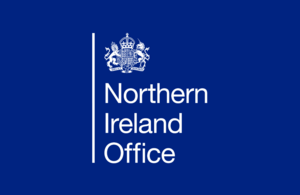Government sets out vision for post EU trade & customs policy
The Government has taken a significant step in preparing to leave the EU by setting out arrangements for post-Brexit trade and customs policy.

- Government lays the ground for the UK’s exit from the EU.
- Separate trade and customs white papers pave the way for legislation to allow the UK to operate as a trading nation as we leave the EU and prevent disruption to trading arrangements.
- Reaffirms government’s commitment to avoid friction for trade in goods and that there should be no physical infrastructure at the border between Northern Ireland and Ireland.
- The UK Government will work closely with Northern Ireland so future trade policy is transparent and secures best possible outcome for whole of the UK.
The Government has taken a significant step in preparing to leave the EU by setting out arrangements for post-Brexit trade and customs policy.
Trade and Customs White Papers published today pave the way for legislation that will ensure the UK is ready for the first day after exit.
The Trade White Paper establishes the principles that will guide future UK trade policy as well as laying out the practical steps that will support those aims.
These include:
- Taking steps to enable the UK to maintain the benefits of the World Trade Organisation’s Government Procurement Agreement.
- Ensuring the UK can support developing economies by continuing to give them preferential access to UK markets.
- Preparing to bring across into UK law existing trade agreements between EU and non-EU countries.
- And creating a new, UK trade remedies investigating authority.
International Trade Secretary Dr Liam Fox said:
We want to build a future trade policy that delivers benefits for the UK’s economy and for businesses, workers and consumers alike.
As an international economic department we are preparing for a future trade policy to help Northern Ireland businesses make the most of the trade opportunities around the world, contributing to a growing economy and creating prosperity for communities up and down the UK.
The UK Government will work with a range of stakeholders to ensure trade policy works for Northern Ireland and secures the best possible outcomes for the whole of the UK.
Secretary of State for Northern Ireland, James Brokenshire MP, said:
Northern Ireland continues to be an attractive place to do business with many inward investment projects secured across the year, creating over 1,600 new jobs and safeguarding almost thousands more and across the UK as a whole, unemployment is down to 4.3% - its lowest since 1975.
This paper is another crucial step towards helping Northern Ireland businesses make their mark on the global market and shows the UK Government is committed to working with all parts of the United Kingdom in ensuring we deliver an EU exit that works for everyone.
The UK Government supports trade and investment in all parts of the UK, to share trade promotion activity to support Northern Ireland businesses.
In 2016/17 Northern Ireland secured 34 Foreign Direct Investment projects, which created a total of 1,622 new jobs and safeguarded 950 jobs.
Also published today is the UK Government’s Customs Bill White Paper, which sets out plans to legislate for the standalone customs, VAT and excise regimes the UK will need once it leaves the EU.
In August the Government set out its proposals for an ambitious new customs relationship with the EU and confirmed that, regardless of the outcome of negotiations, the UK would need new customs laws in place by March 2019. Responding to business calls for continuity, today’s White Paper confirms that the UK’s new legislation will, as far as possible, replicate the effect of existing EU customs laws.
In addition, while the Government has repeatedly said that we are confident that a positive deal can be reached with the EU, it is only prudent we prepare for every possible outcome. Therefore, the paper covers provisions for the implementation of customs, VAT and excise regimes in the event that no deal is reached, and sets out the steps the Government would take to minimise disruption for businesses and travellers. It also enables the UK to prepare for a range of negotiated outcomes including an implementation period.
The Customs Bill White Paper repeats the UK government’s commitment to avoid any physical border infrastructure on either side of the border between Northern Ireland and Ireland.
The Customs Bill will give the UK the power to:
- Charge customs duty on goods; define how goods will be classified , set and vary the rates of customs duty and any quotas.
- Amend the VAT and excise regimes so that they can function effectively post-exit
- Set out the rules governing how HMRC will collect and enforce the taxes and duties owed.
- Implement tax-related elements of the UK’s future trade policy.
Chancellor of the Exchequer, Philip Hammond said:
Investment and trade are crucial to the economic future of this country. This White Paper sets out our plan to keep trade with the EU as frictionless as possible, and reaffirms the government’s commitment to deliver a smooth transition.
Further information
- As we prepare to leave the EU, we will seek to transition existing EU trade agreements and other EU preferential arrangements, ensuring that the UK maintains the maximum certainty and continuity in trade and investment relationships for businesses, citizens and our trading partners.
- Our total trade with the world is equivalent to over half our GDP - exports and imports were each equivalent to about 30% of GDP in 2016.
- The UK Government has worked successfully alongside the Scottish Government, Welsh Government, and Northern Ireland Executive and their agencies in promoting trade and investment activity and we intend to continue this collaborative approach as we develop the UK’s future trade policy.